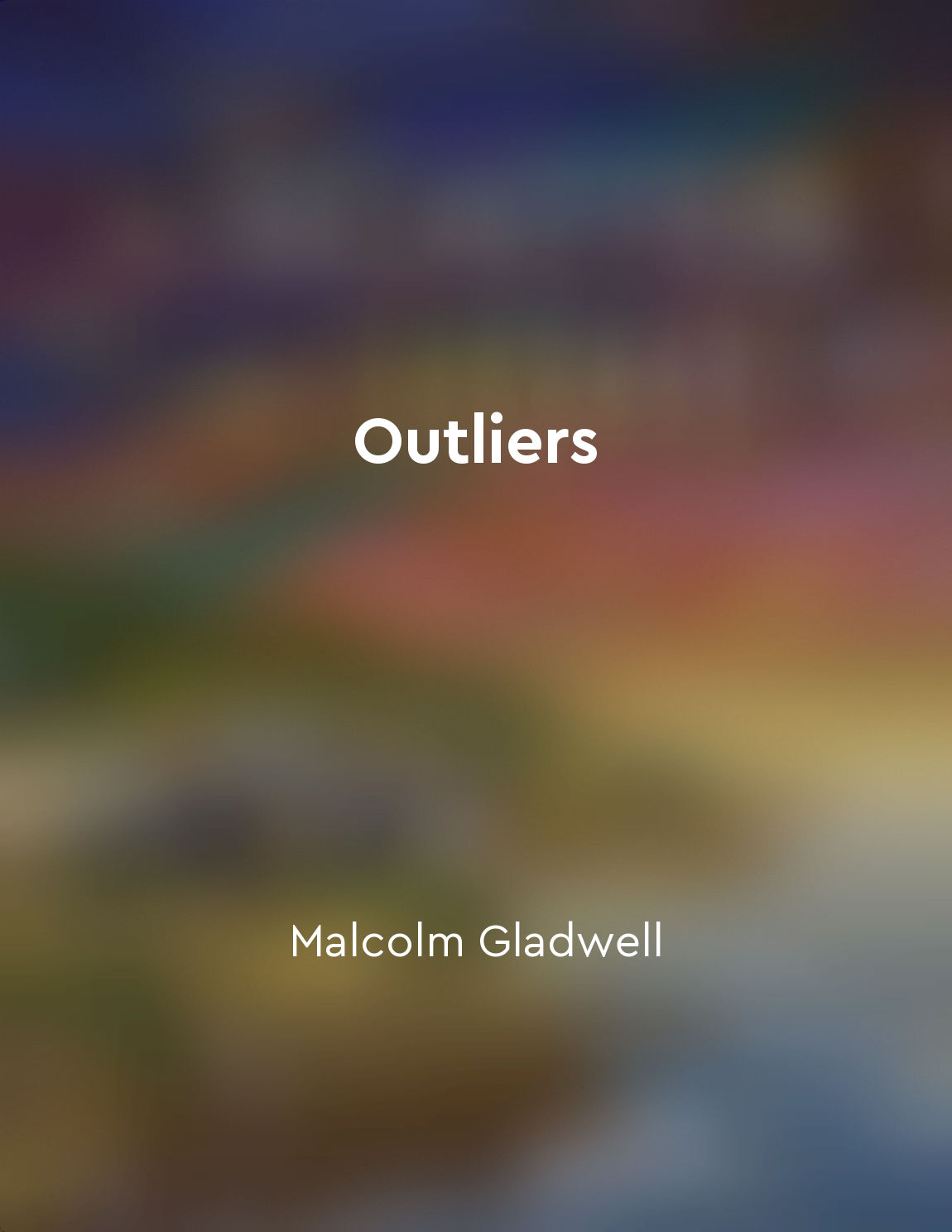The concept of "cultural legacies" and how they shape individual behavior from "summary" of Outliers by Malcolm Gladwell
Cultural legacies play a crucial role in shaping individual behavior. These legacies are deeply ingrained in our upbringing, influencing the way we perceive the world and interact with others. In many cases, cultural legacies are passed down through generations, creating a strong sense of identity and belonging within a community. For example, in some cultures, there is a strong emphasis on respect for authority and tradition. Children are raised to follow strict rules and conform to societal norms, instilling a sense of discipline and obedience from a young age. This cultural legacy can manifest in various ways, such as the way individuals communicate, make decisions, and approach challenges in their personal and professional lives.
On the other hand, in cultures that value individualism and independence, people may exhibit different behaviors that reflect these values. They may prioritize personal goals over collective interests, seek autonomy and self-expression, and value creativity and innovation. These cultural legacies shape the way individuals think, feel, and act in different contexts, influencing their attitudes, beliefs, and behaviors.
Furthermore, cultural legacies can also impact how individuals perceive success and failure. In some cultures, success is measured by wealth, status, and material possessions, leading individuals to pursue lucrative careers and prestigious positions. In contrast, in cultures that prioritize community, relationships, and personal fulfillment, success may be defined by happiness, well-being, and contribution to society.Cultural legacies serve as a lens through which individuals view the world and navigate their lives. They provide a framework for understanding social norms, values, and practices, shaping the way people interact with others and make decisions. By recognizing the influence of cultural legacies on individual behavior, we can gain a deeper understanding of ourselves and others, fostering empathy, respect, and appreciation for diverse perspectives and experiences.

Open in app
The road to your goals is in your pocket! Download the Oter App to continue reading your Microbooks from anywhere, anytime.


